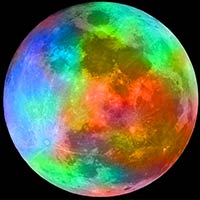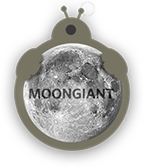
Full Moon and New Moon for November 2024
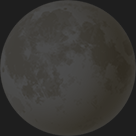 | New Moon November 1 - 12:47 UTC  | |
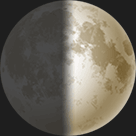 | First Quarter November 9 - 05:55 UTC  | |
 | Full Moon November 15 - 21:28 UTC  | |
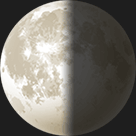 | Last Quarter November 23 - 01:28 UTC  |
| ⟨ |  New Moon November 1 12:47 UTC |  First Quarter November 9 05:55 UTC |  Full Moon November 15 21:28 UTC |  Last Quarter November 23 01:28 UTC | ⟩ |
November 2024 Moon Details
The Full Moon for this month will occur on Friday, November 15th. The New Moon is earlier in the month on Friday, November 1st.

About November's Full Moon
With the changing of the seasons, November’s full moon marks the beginning of the end. In many different cultures, November’s full moon is intimately connected with death and loss, on both a literal and symbolic level. The Celts, for instance, called it the Reed Moon, comparing the mournful music made by wind instruments to the ghoulish sounds of spirits being drawn into the underworld. And not without good reason - the Full Mourning Moon marks a dangerous time of the year where people could easily slip into the underworld with a single misstep.
We may enjoy the luxury of winter coats and central heating now, but freezing to death during the long, dark winters used to be a very real threat to early inhabitants of Northern America. In order to survive, making warm winter clothing out of beaver fur was crucial for American colonists and Native American tribes. This is why November’s full moon is also known as the Beaver Moon. During this month, beavers are very active, working hard on dam construction, and so this was a good time to start harvesting their fur.
Missing the timing for this would mean death for these early Northern American communities, as the rivers would freeze over, making it impossible to set out traps. Many Native American tribes, including the Cree, Arapaho, and Abenaki tribes, called November’s full moon the “Moon When Rivers Start to Freeze”. This name drives home the importance of November’s full moon as a signal for these Native American tribes to begin trapping beavers before it was too late, as well as to complete their preparations for the darkest
For the Pagans, on the other hand, the final stage of their winter preparations involve the very important process of “mourning” - which is why they call the last moon before the winter solstice the Mourning Moon. After a full year of accumulating possessions, both physically and otherwise, the Mourning Moon is the perfect time to let go of old, unnecessary things, while giving yourself permission to mourn their passing. Practicing Pagans may perform a moonlit ritual where they write down the things they want to rid themselves of, and ask their Goddess for help in removing unwanted burdens.
Pagan traditions aside, anyone can benefit from taking the time to self-reflect and to let go. Take advantage of the Full Mourning Moon this November to look back on your year and take stock of your desires, your ambitions, your mental and behavioral habits, and the people you spend your energy on. Clean your living and work spaces, and sort out the physical objects that are not contributing to your well-being. Take the time to fully mourn and let go of anything - or anyone - that does not bring you joy, so that you can begin to move forward, unfettered, towards a lighter and happier new year.
Local Date and Time for November 2024 Full Moon in major cities around the world:
Los Angeles,
San Francisco,
Vancouver
November 15, 2024
1:28pm PST
Denver,
Salt Lake City,
Calgary
November 15, 2024
2:28pm MST
Chicago,
Houston,
San Antonio
November 15, 2024
3:28pm CST
New York,
Toronto,
Atlanta
November 15, 2024
4:28pm EST
London,
Manchester,
Dublin
November 15, 2024
9:28pm GMT
Paris,
Rome,
Berlin
November 15, 2024
10:28pm CET
Athens,
Istanbul,
Helsinki
November 15, 2024
11:28pm EET
Dubai,
Abu Dhabi,
Muscat
November 16, 2024
1:28am +04
Bangalore,
Mumbai,
New Delhi
November 16, 2024
2:58am IST
Singapore,
Kuala Lumpur
November 16, 2024
5:28am +08
Perth,
Hong Kong,
Beijing
November 16, 2024
5:28am AWST
Sydney,
Brisbane,
Melbourne
November 16, 2024
8:28am AEDT
